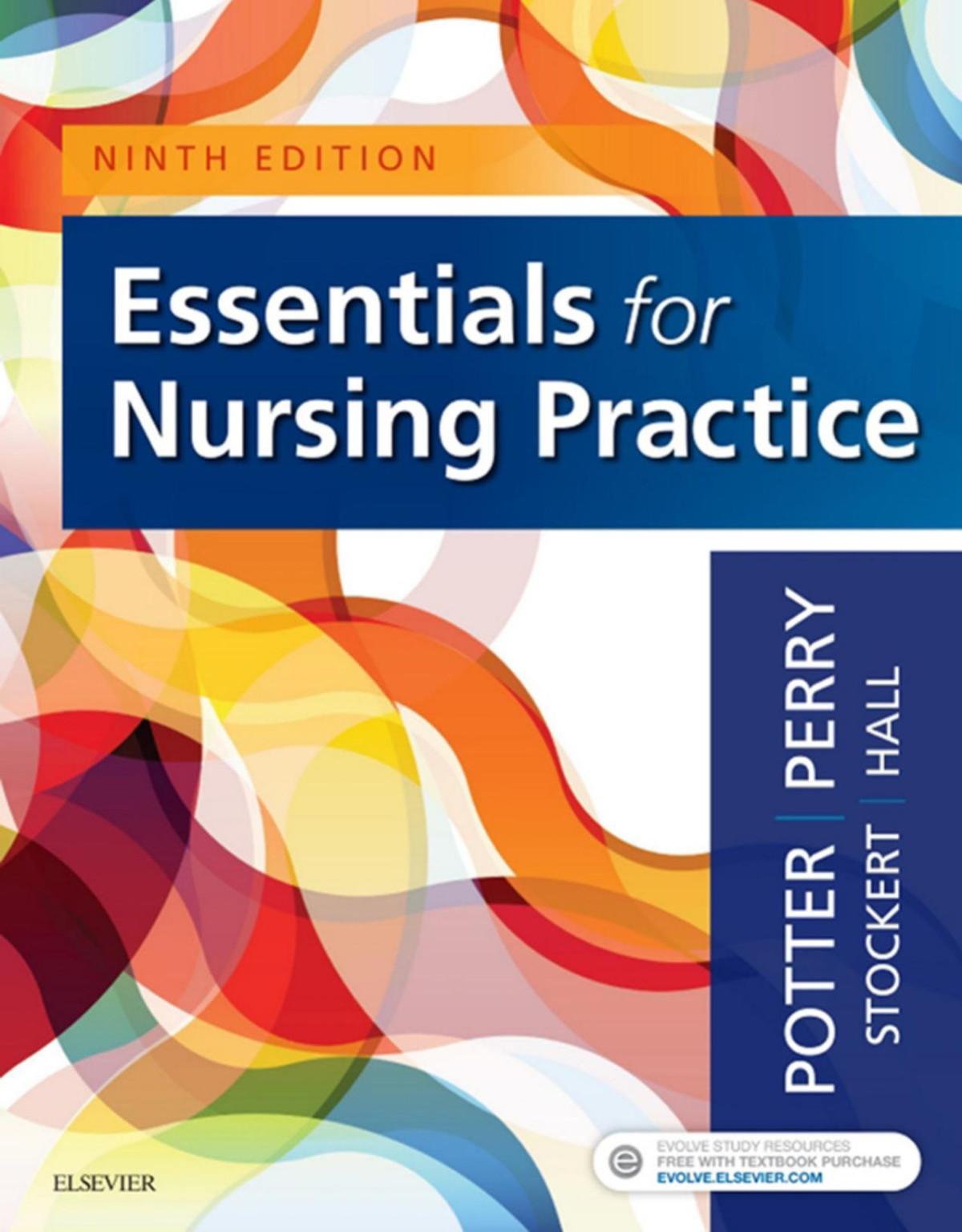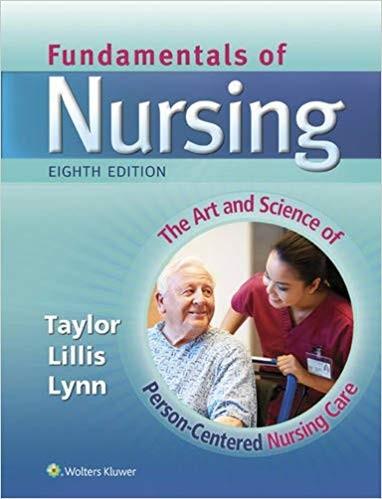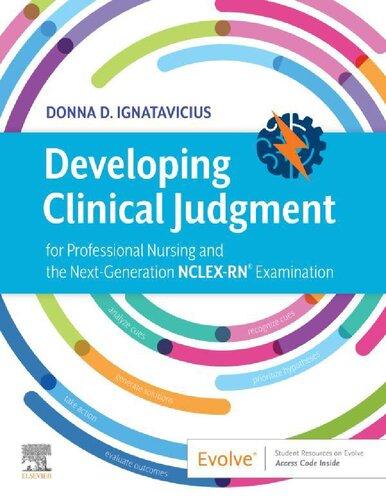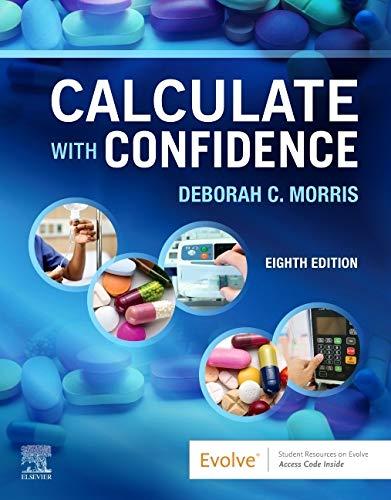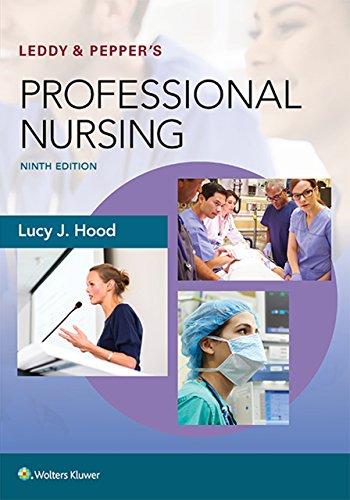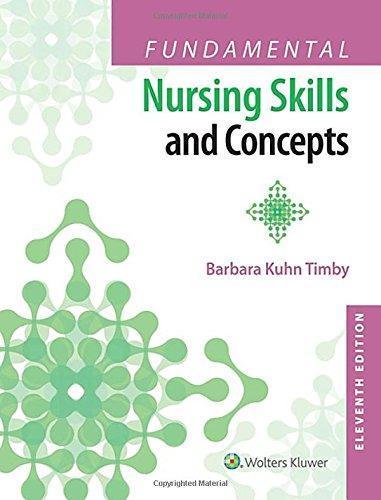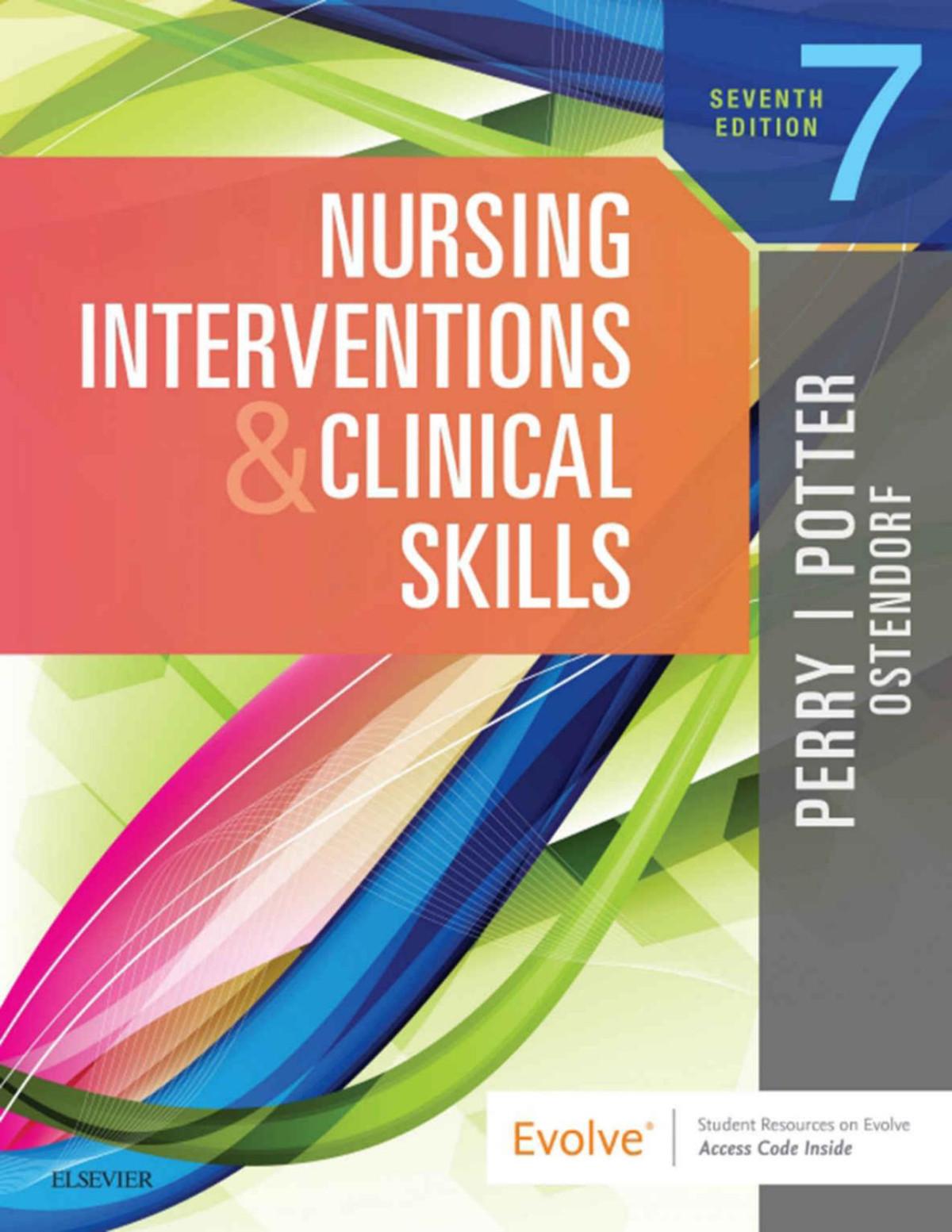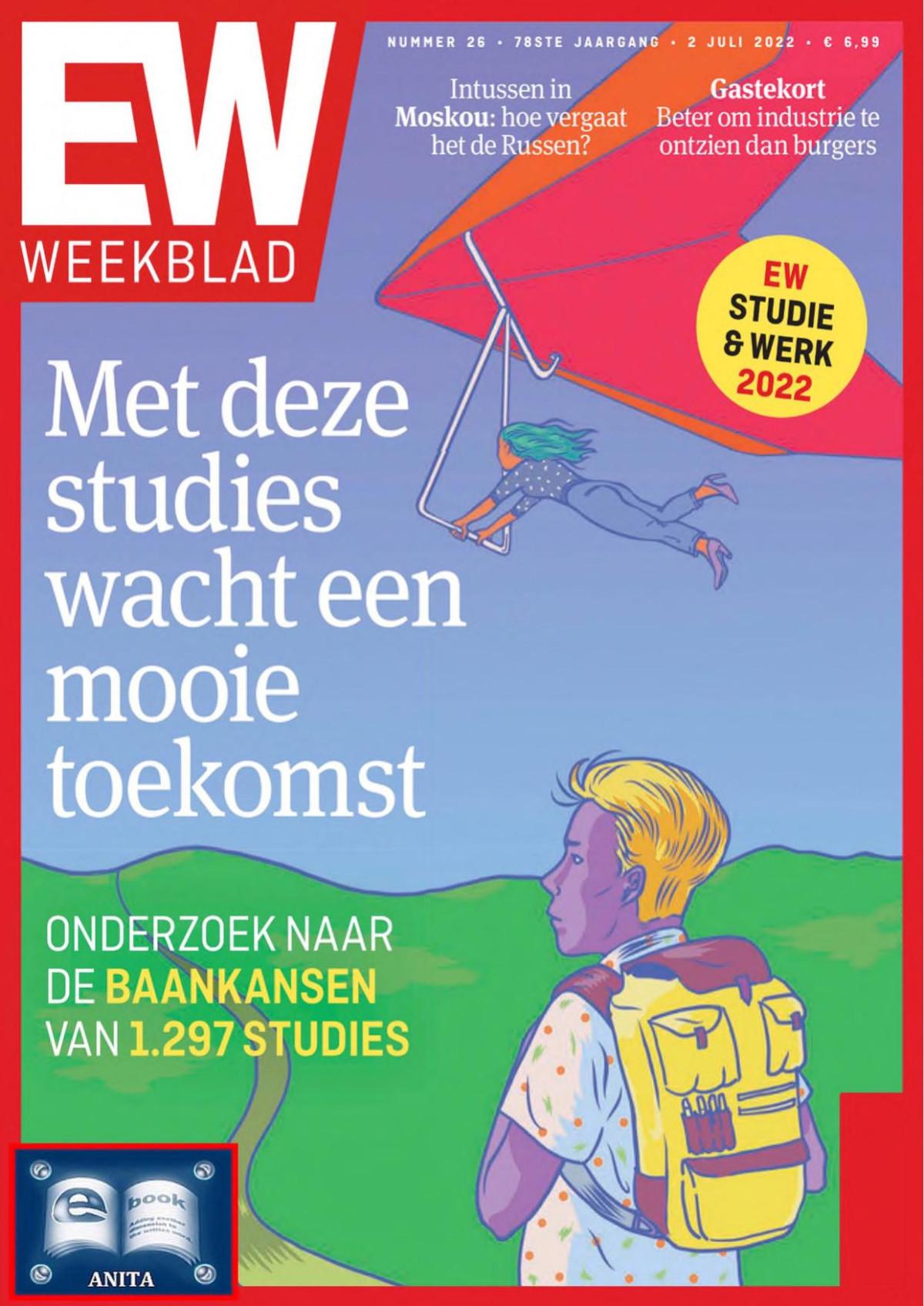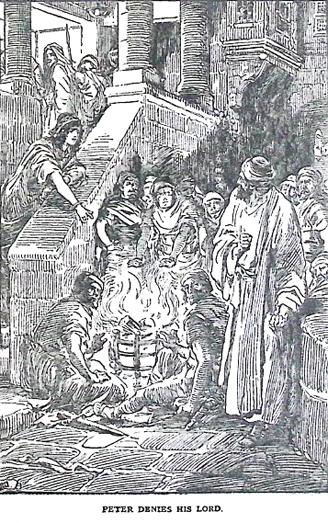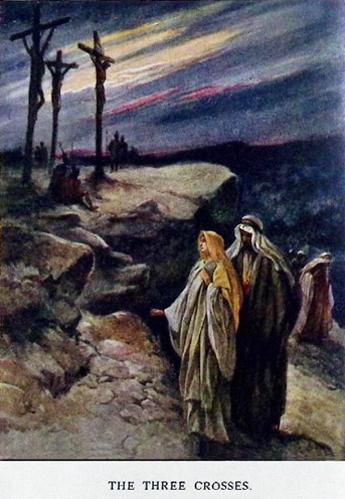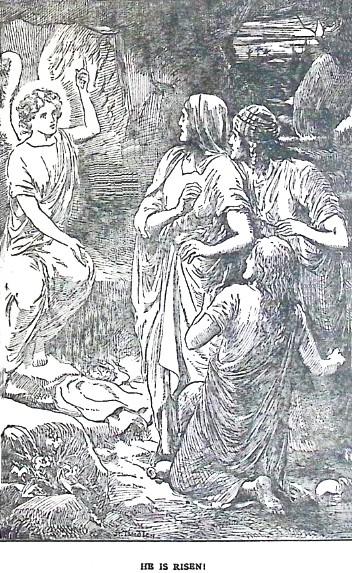Nursing in Today’s Evolving Health Care Environment
Heather Moulzolf, DNP, MA-N, BA-N, ARNP-BC, CNP-BC, Josie K. Christian, DNP, MSN, BSN, RN, PHN
To enhance your understanding of this chapter, try the Student Exercises on the Evolve site at http://evolve.elsevier.com/Black/professional.
LEARNING OUTCOMES
After studying this chapter, students will be able to:
• Describe the demographic profile of registered nurses today.
• Recognize the wide range of settings and roles in which today’s registered nurses practice.
• Identify evolving practice opportunities for nurses.
• Consider nursing roles in various practice settings.
• Explain the roles and education of advanced practice nurses.
Nurses comprise the largest segment of the health care workforce in the United States and have increasing opportunities to practice in a wide variety of settings. In fact, nurses specialize in 104 areas: 34 specialties are outside the hospital, 68 are research oriented, 37 are managerial, and 92 are patient facing (see the Campaign for Nursing Explore Specialties at https://www.discovernursing.com/explore-specialties#.WhXOF0qnE2w ).
More than ever, the profession requires a well-trained, flexible, and knowledgeable workforce of nurses who can practice in today’s evolving health care environment. Recent legislation, demands of patients as consumers of health care, and the need to control costs while optimizing outcomes have had a great influence on the way that health care is delivered in the United States. Nursing is evolving to meet these demands.
One of the most notable influences on today’s health care environment is the Affordable Care Act (ACA), passed in 2010 by the 111th Congress and signed into law by President Barack Obama. The ACA is actually two laws—the Patient Protection and Affordable Care
Act (PL 111-148) and the Health Care and Education Affordability Reconciliation Act (PL 111-152). These laws provide for incremental but progressive change to the way that Americans gain access to and pay for their health care. Although likely to be revised to some extent by Congress, the ACA has nonetheless provided increased opportunities for nurses: the Committee on the Robert Wood Johnson Foundation (RWJF) Initiative on the Future of Nursing at the National Academy of Medicine (formerly the Institute of Medicine [IOM]) noted, “Nurses have a considerable opportunity to act as full partners with other health professionals and to lead in the improvement and redesign of the health care system and its practice environment” (Institute of Medicine, 2010, pp. 1–2). This important initiative continues to have a profound influence on the evolution of nursing and nursing education since its publication.
Writing about “nursing today” poses a challenge, because what is current today may have already changed by the time you read this. What does not change, however, is the commitment of nurses to what
Another random document with no related content on Scribd:
Who taketh away the sin of the world—He gathered His twelve disciples together, and sat down to eat that Feast with them in the upper room.
Jesus told them that, with great desire, He had desired to eat this Passover with them. He knew that to-morrow He would die.
And as they were eating, Jesus was troubled in spirit, and told them that one of them would betray Him.
Close to His side, leaning on His bosom, was the disciple whom Jesus loved; and Peter beckoned to him to ask the Lord who it would be who should betray Him?
So John, lying on Jesus' breast, whispered, "Who is it, Lord?" And Jesus answered, "It is he to whom I give a sop when I have dipped it." And he gave the sop to Judas Iscariot.
And as they were eating, Jesus "took bread, and gave thanks, and brake it, and gave unto them saying, 'This is My Body, which is given for you: this do in remembrance of Me.' Likewise also the cup, after supper, saying, 'This cup is the new testament in My Blood, which is shed for you.'"
St. Paul says, "Christ our Passover is sacrificed for us, therefore let us keep the Feast."
And from that Last Supper before His death, till now, nearly for two thousand years, in one unbroken chain, week by week, those who love Christ have partaken of this Holy Feast, in remembrance of Him, till He shall come back again.
The Holy Supper was over. Judas had left them to go and betray his Master, and was gone out into the darkness. In that wonderful conversation, as Jesus talked with them for the last time, He told them many things, which they understood more clearly afterwards. He told them that He would not leave them comfortless, but would come to them; He told them that He was going to prepare a place for all who loved Him, in the many mansions of His Father's house.
All His words were full of glory and comfort.
And then they sang a hymn together Jesus and His disciples—and after that they went into the Mount of Olives, where the Easter Passover moon was shining among the sombre trees; and there it was that Judas found Him, and betrayed Him to the multitude.
VI. Peter Denies His Lord; and the Risen Saviour Forgives
The time had come at length for our Lord Jesus Christ to go to the death which He had come to bear for us.
He had told His disciples that He would be betrayed, and given into the hands of the Jews; and that now all the prophecies in the Old Testament about Himself were going to be fulfilled.
The disciples had listened, but they could not believe that such dreadful things would really happen to Him.
On the very night that He was betrayed by Judas, the Lord told them that all of them would be offended because of Him that night; and would forsake Him, but that after He was risen from the grave, He would go before them into Galilee, where they should see Him again.
Then Peter answered: "Though all men shall be offended because of Thee, yet will I never be offended!"
Jesus said unto him, "Verily I say unto thee, that this night, before the cock crow, thou shalt deny Me thrice."
Still, Peter, confident in himself, and confident in his love for his Master, said that he would rather die with Him than deny Him! And so they all said.
But Peter had to find out, by bitter experience, that he was weak in himself; for when Judas betrayed Jesus with a kiss in Gethsemane, and when the soldiers from the High Priest seized Him and too Him bound to Jerusalem, all the disciples forsook Him and fled!
PETER DENIES HIS LORD.
Peter, however, followed Him afar off, right into the High Priest's palace; but the servants round the fire in the hall charged him with being one of the disciples, and their raillery, and the accusations of a maid, were Satan's wiles to cause Peter, to stumble and fall: and so he denied all knowledge of Jesus, with oaths and curses.
And at that moment the cock crew; and Peter remembered what Jesus had said: and horrified at what he had done, he hurried to the door; and as he went, the Lord
turned and looked upon Peter. And he went out and wept bitterly.
Poor sorrowful Peter! Ah, no one can fathom what he went through that night, and the next awful day of the Crucifixion: and the two following days, when the Lord's Body lay in the grave, and Peter recalled with agony that he had forsaken Him when He needed his love most! We can only picture it to ourselves; but it must have been truly dreadful.
At length came the third day, when Jesus had told the disciples He would rise from the dead.
Their hearts were so heavy with grief, and so slow to take in what our Lord had so constantly told them, that they did not expect, when they visited the grave on that third day, to find it empty!
The women with their loving hearts were the first to reach the spot, carrying sweet spices to anoint their Lord!
They had expected to find His dearly loved Body lying in the grave—dead. Instead, they found the grave empty and a Vision of Angels!
They were so frightened that they were hurrying away, but the Angel who was sitting within the empty tomb told them not to be frightened, for though they sought Jesus of Nazareth Who was crucified, yet He was not there, for He was risen!
And then the Angel gave them this message from God: "Go tell His disciples, and Peter, that He goeth before you into Galilee: there shall ye see Him, as He said unto you."
Why was that separate message sent to Peter?
Oh, the graciousness of the forgiveness of Jesus! Peter had said "he was not one of them," meaning not one of His disciples. And it may be, that if the Angel's message had only been "Go, tell His disciples," that Peter would have been utterly hopeless.
But the sorrowing man had a message all to himself!
Ah, what that must have meant to Peter!
And we have another sweet assurance of the forgiving love of our God and Saviour.
We read, in the last chapter of Luke, that those two whom Jesus had met going to Emmaus after His Resurrection, had hurried back to Jerusalem to tell the eleven that they had seen the Lord; and were greeted with the joyful news which the other disciples had also heard— that "the Lord was risen indeed, and had appeared to Simon Peter!"
We have no account of what Jesus said to Peter, nor what Peter said to Jesus.
But the fact is full of deepest comfort to all of us who so often grieve Him, that, in spite of Peter's sad denial, his risen Lord appeared to him, forgave him his sin, and restored him to his place among the others.
Thenceforward Peter became one of the most faithful of Christ's disciples; and when he preached that wonderful sermon at Pentecost, a few weeks afterwards, God gave him the honour of bringing three thousand souls to love and
believe in our Lord Jesus Christ, Who was dead, but is alive again!
Many years afterwards, St. Paul mentions the name of Peter among the list of those who saw the Lord after His Resurrection. He calls him "Cephas;" but if you turn to the first chapter of St. John's Gospel, you will see that our Lord, when He makes Simon the son of Jonas one of His disciples, calls him Cephas, which means "a stone," or Peter; and I have read that Cephas means "a piece of Rock," and The Rock Itself—is Christ!
VII. "Father's Plan"
Now I want you to picture to yourselves an earthly father gathering his children around him before he took a journey.
He told them he would only be away a month, and at the end of that time it would be holiday time, and they could all prepare for a visit to the seaside.
He bade them get everything packed up; and he said he had engaged a house at a certain place, and had arranged with an experienced boatman to be at their service all day long.
He had hired a pony carriage for their mother, and everything was all ready when he should come home.
You can imagine how delighted the children were, and how they talked of nothing else but "Father's plan" for the whole month.
But did all this ever happen?
No; not one of these "plans" came to pass.
The cloud of war came that summer, and darkened all the bright prospect.
That visit to the seaside never came off. Instead, their father was detained in a foreign country for months and months; the lodgings were shut up, for the coast was in danger; the boatmen had to join the Navy; the holidays came, indeed, but an epidemic at the school spoilt all plans for many months, and the children had to learn, and so had the dear mother and father, what bitter disappointment means. And yet nothing seemed more certain than "Father's plan."
But there is One Whose Throne is above the highest Heavens; and when He plans, there is no mistake; no war can hinder it; no illness nor misfortune can prevent the carrying out of what He purposes.
In chapter xlvi, of Isaiah we read what God says about this, and it is a very solemn verse—
"Remember the former things of old: for I am God, and there is none else; I am God, and there is none like Me, declaring the end from the beginning, and from ancient
times the things that are not yet done, saying, My counsel shall stand, and I will do all My pleasure . . . I have purposed it, I will also do it."
When we look into our Bibles, and begin to think about the things which God has told people beforehand, and which have come to pass, we are amazed to find how many there are, and how wonderful are the fulfilments.
THE PROPHECY IN EDEN.
Gen. iii. 15.—Gal. iv. 4.
The first Prophecy, and with it a great Promise, was given by God in the Garden of Eden.
When Adam and Eve were disobedient, and were tempted by Satan to eat the forbidden fruit, God could not let them stay in that beautiful garden any longer, but He told Adam he must go and dig the ground. And God told Satan that he would be like a Serpent always, and eat dust; and then God gave this promise to Eve, that her Seed—that meant one of her children's children, long after, should bruise the head of the Serpent who had deceived her.
And this came true four thousand years after!
God sent His Son; and it was through the death of Jesus on the Cross that He destroyed the power of Satan; for those who turn to Jesus Christ for Salvation have Everlasting Life given them.
PROPHECY OF THE FLOOD.
Gen. vi. 17.—1 Peter iii. 20.
In the two thousand years after that promise in the Garden of Eden, there came to be a great many people on the earth, but most of them were very wicked, and at last God said that He would destroy the wicked people by a great Flood, in one hundred and twenty years.
But there was one man who loved God, and his name was Noah.
So God told Noah He was going to send a Flood, and He instructed him to prepare an Ark, so that he and his family should be saved from the Flood.
But though it was such a long time that the Ark was being built, and God was very long-suffering, at last the day came when He told Noah to come into the Ark with his wife and children, and to take two, and in some cases seven pairs, of every living creature into the Ark with him.
Then "the Lord shut them in" safely, and the rain began, and never ceased till even the highest mountains were covered right up.
Thus the Word of the Lord, spoken one hundred and twenty years before, was fulfilled.
At length the rain stopped and the waters began to go down, and at last the Lord told Noah to come out of the Ark. So he and his family and all the living creatures came out; and Noah built an Altar, and the Lord accepted his sacrifice.
Then God gave a beautiful Promise and a beautiful Prophecy, and of both we see the constant fulfilment now.
The Promise was, that He would never send a Flood again: and the Prophecy was—"While the earth remaineth, seed-time and harvest, and cold and heat, and summer and winter, and day and night shall not cease."
And then God gave them the Token of His Promise, in putting His rainbow in the cloud whenever there is rain and the sun shines at the same time.
God said He would look upon the rainbow and remember His covenant not to send another Flood; and when we turn our eyes to that beautiful coloured arch above us, we can say reverently: "God is looking on that bow too."
The rain reminds us of the Flood; but the sunshine reminds us of God's love: and the rainbow itself reminds us that in that great love He gave His beloved Son. He is our rainbow of Promise.
VIII. Prophecy of the Jews: A Separate People
Numb. xxiii. 9.—Rom. ix. 4, 5.
I have heard children say carelessly: "Oh, that is only an old Jew!"
And when my children were little, I used to tell them that we should love the Jews, and be kind to them, and pray for them. For they are God's own dear people, and our Lord Jesus Christ was a Jew, when He came to earth and took our human nature.
It is true that the Jews are scattered all over the world now for their unbelief and disobedience; but by and by, God tells us, they will be gathered in their sows land, and Jesus will reign over them as King of kings, and Lord of lords.
In Numbers xxiii. 9 we find a prophecy about the Jews. Balaam prophesied: "The people shall dwell alone, and shall not be reckoned among the nations."
God separated them in various ways to be His own people. He promised to go with them; and He also gave them certain laws which they were to keep. They were not permitted to marry outside their own nation; they were only allowed to use certain animals for food, and the animals must be killed in a certain way, so that the blood was poured out. They were forbidden to worship idols, or to follow the practices of the nations round them.
They were to keep one a day week holy, and they were to go up to Jerusalem once a year to keep the Passover.
These rules kept them separate from all other peoples, and as long as they obeyed God they were abundantly prosperous.
Thus the prophecy spoken by Balaam so long ago, about the Jews being a people apart by themselves, is fulfilled to the very letter to-day.
PROPHECY OF DELIVERANCE FROM EGYPT.
Gen. l. 24.—Josh. xxiv. 32.
Once when God was talking to Abraham, and promising to give the Land of Canaan to his children, He told him that they should be strangers in a land which was not theirs for four hundred years, and should be afflicted by those among whom they dwelt; but "also the nation whom they shall serve will I judge," said God, "and afterwards shall they come out with great substance."
The Children of Israel, who are now called the Jews, travelled from Canaan into Egypt to their brother Joseph, because, of the great famine, and lived in Egypt for four hundred and twenty years.
But when Joseph came to die, he called his brothers to his side and uttered this prophecy: "I die; and God will surely visit you, and bring you out of this land which He swore to Abraham, to Isaac, and to Jacob." And Joseph took an oath of his brothers, saying: "God will surely visit you, and ye shall carry up my bones from hence."
So Joseph died at the age of a hundred and ten years, and they embalmed and put him in a coffin in Egypt.
But when the time came for the children of Israel to be delivered from Egypt, as they escaped from their cruel taskmasters, in all their hurry and confusion, Moses remembered to take the bones of Joseph with him; and as the Children of Israel wandered in the Wilderness, they bore that coffin with them, till at last they reached the land of Canaan which God had promised to give them. Here Joshua, who led the people after Moses' death, buried the bones of Joseph in Shechem, in a piece of ground which Jacob had
bought before he was carried down into Egypt at the time of the famine.
Thus the prophecy uttered hundreds of years before was fulfilled to the very letter.
PROPHECY OF THE CAPTIVITY.
Jer. xxv. 12.—Dan. i. 1-3.—Ezra i. 1-6.
Many years had passed away, during which the Children of Israel had been governed by judges, and by the kings of Judah and Israel; but gradually the people got slack; they forgot the Lord that brought them out of the land of Egypt, and forsook His commandments and fell into idolatry and dreadful sin.
At length God told the Prophet Jeremiah that the sins of the people were so great that He must send Nebuchadnezzar, King of Babylon, to carry them away captives, and that they would serve him for seventy years, while the land of Canaan should be a desolation, and enjoy her Sabbaths.
We read in the first chapters of Daniel about this captivity.
Meanwhile God was very pitiful to His people whom He had had to punish, and He sent them this message through Jeremiah:—
"For thus saith the Lord, That after seventy years be accomplished at Babylon, I will visit you, and perform My good work toward you, in causing you to return to this place."
God told Jeremiah to tell them to build houses and make families during that seventy years; to pray for their enemies, and to ask God to send them peace. And God heard their prayers; and when the seventy years were accomplished, He fulfilled the prophecy in a very wonderful way, by raising up Cyrus, King of Persia, to send the Jews back to rebuild God's Temple at Jerusalem. And Cyrus helped them in every way, even giving them back the sacred vessels of the House of God which Nebuchadnezzar had taken; and by encouraging his people to help the Jews by giving them silver and gold, and beasts to carry the treasures, and all that they needed.
Thus God fulfilled His own word, and the people returned at the end of the seventy years.
IX. "Prepare Ye the Way of the Lord"
Isa. xl. 3.—Matt. iii. 3.
Seven hundred years before our Lord Jesus was born, in Bethlehem, the Prophet Isaiah foretold that a man would live in the wilderness, and would cry aloud, "Prepare ye the way of the Lord! Make straight in the desert a highway for our God! . . . The grass withereth and the flower fadeth, but the word of our God shall stand for ever! . . . O Jerusalem that bringest good tidings, lift up thy voice with strength; lift it up, be not afraid; say unto the cities of Judah, Behold
your God!" That was the prophecy, and we read the fulfilment in the Gospels of Matthew and John.
"In those days came John the Baptist, preaching in the wilderness of Judæa, and saying, Repent ye: for the Kingdom of Heaven is at hand. For this is he that was spoken of by the prophet Isaiah, saying, The voice of one crying in the wilderness, Prepare ye the way of the Lord, make His paths straight!"
Do you not think that John the Baptist must have felt greatly honoured to know that he was this messenger of the Lord?
He was the cousin of the Lord Jesus. And before John's birth, an angel told his father, Zacharias, that his name was to be John, and that he should be great in the sight of the Lord, and should preach in the spirit and power of Elijah, and make ready a people prepared for the Lord.
It was John the Baptist who, you remember, had the great honour of baptizing the Lord Jesus; and it was he who uttered one of the most wonderful sentences in the Bible: "Behold the Lamb of God, Which taketh away the sin of the world."
PROPHECY OF CHRIST'S BIRTH.
Isa. ix. 6.—Matt. ii. 11.
"Now when Jesus was born in Bethlehem of Judæa, in the days of Herod the king, behold, there came Wise Men from the east to Jerusalem"; and as they entered the city, their first question astonished everyone.
"Where is He that is born King of the Jews?" they asked. "For we have seen His star in the east, and we are come to worship Him."
Herod was the king then, placed there by the Romans, and he did not like to hear that there could be another king! He sent at once for the scribes, and demanded of them where Christ should be born. So they told him that Micah had prophesied in their Scriptures that Christ should be born in Bethlehem. And Herod was so anxious to make sure of this, that he sent the Wise Men to inquire in Bethlehem, and said he would come to worship Him.
And the Star moved before the Wise Men till it came and stood over where the young Child was.
Then the Wise Men saw the Holy Babe, with Mary, His mother; and they fell down and worshipped Him, and opened their treasures, and gave Him the precious gifts they had brought from the east.
In Isaiah vii. 14 the Jews were told that the mother of the Lord should be a virgin; and in Jeremiah xxiii. 5 that He should be of the royal house of David.
And now comes the fulfilment of all these prophecies off seven hundred years before.
He was born of a virgin, in Bethlehem, David's city.
Also God said by Micah He was "to be Ruler in Israel"; and in Isaiah xlix. 6 we have this great and further prophecy which embraces the whole world: "I will also give Thee for a light to the Gentiles, that Thou mayest be My salvation unto the end of the earth."
So we think of our Lord Jesus Christ as the great Gift which God the Father gave to the world.
No wonder that the angel announced to the shepherds that it was tidings of great joy, which should be to all people! No wonder that the multitude of the Heavenly Host came down and joined in the Song of Praise, on that night when the glory from Heaven shone round about them all, and the earth received the Gift of the only begotten Son of the Father.
PROPHECY OF CHRIST'S MINISTRY.
Isa. lxi. 1.—Luke iv. 21.
When the Lord Jesus began His ministry on earth He went into the synagogue at Nazareth, and stood up to read. The attendant handed Him the Roll containing the Prophecies of Isaiah; and the Lord found the place, and this is what He read:—
"The Spirit of the Lord God is upon me; because the Lord hath anointed me to preach good tidings unto the meek; He hath sent me to bind up the brokenhearted, to proclaim liberty to the captives, and the opening of the prison to them that are bound; to proclaim the acceptable year of the Lord."
And Jesus closed the book, and He gave it again to the attendant, and sat down. And the eyes of all that were in the synagogue were fastened on Him.
And He began to say unto them "This day is this Scripture fulfilled in your ears."
The Prophecy in Isaiah was written more than seven hundred years before! That day it was fulfilled!
The King of Glory had taken our human nature upon Him, that He might taste death for every man; and His first words as to His mission were, that He would preach the Gospel to the poor, and heal the brokenhearted!
Think how full of mercy His days were! How He gave the widow's only son, who was dead, back to her alive; how He healed the Roman soldier's servant, who was dear to him; how He touched the lepers and made them well; how He forgave the sins of the palsied man, and healed him; how He forgave Peter and restored him.
No wonder St. John in his Gospel says: "If all the things which Jesus did should be written every one, I suppose that even the world itself could not contain the books that should be written!"
X. The Prophecy of a Suffering Messiah
Isa. liii. 3-5.—John xix. 5.
There is a great deal said in the Old Testament about the Reign of Christ as King; but though the Jews read these Scriptures every Sabbath day, they did not notice that it
was written in a number of places that before He was crowned King He was to suffer and die.
Why did He die? The reference quoted at the head of this page, written by Isaiah so long before, tells us why it was.
"He was wounded for our transgressions, He was bruised for our iniquities: the chastisement of our peace was upon Him; and with His stripes we are healed. All we like sheep have gone astray; we have turned every one to his own way; and the Lord hath laid on Him the iniquity of us all."
Jesus Himself said: "I lay down My life for the sheep . . . No man taketh it from Me, but I lay it down of Myself. I have power to lay it down, and I have power to take it again. This Commandment have I received of My Father."
Isaiah tells us "He was despised and rejected of men; a Man of sorrows and acquainted with grief." And when the council of the Jews had judged Him, and condemned Him to be worthy of death, they handed Him over to Pilate, the Roman governor, to execute the cruel death which they could not carry out themselves.
And so the soldiers mocked Him and platted that crown of thorns, and Pilate brought Him out wearing the royal robe that the soldiers had put upon Him in mockery. But not satisfied with the cruel death He was to die, Pilate ordered Him to be scourged, all the time protesting that he found no fault in Him.
Thus those words in Isaiah liii. 8 were fulfilled: "He was taken from prison and from judgment . . . for He was cut off out of the land of the living: for the transgression of My people was He stricken."
And then He was taken to the Cross.
PROPHECIES OF THE DEATH OF THE MESSIAH.
Dan. ix. 26.—Acts ii. 23.
We read in Daniel that "The Messiah shall be cut off, but not for Himself." And Zechariah says: "And one shall say unto Him, What are these wounds in Thine hands? Then He shall answer, Those with which I was wounded in the house of My friends."
THE THREE CROSSES.
As our Blessed Lord hung on that Cross "He was numbered with the transgressors," for two thieves were crucified with Him.
In the twenty-second Psalm we learn to understand a little of the anguish which made Him cry on the Cross: "My God, My God, why hast Thou forsaken Me?" It was because "He bore our sins in His own Body on the tree."
"He bare the sin of many, and made intercession for the transgressors."
But though all this came upon that beloved Son of God, in order that He might redeem the world, we have, in Isaiah liii. 10, a great and beautiful promise of the Resurrection, and of His afterwards reigning in glory as King:
"When thou shalt make His soul an offering for sin, He shall see His seed, He shall prolong His days, and the pleasure of the Lord shall prosper in His hand."
"He made His grave with the wicked, and with the rich in His death." This was fulfilled when rich Joseph of Arimathæa buried Him in beautiful fine linen in his own new grave in that garden near Calvary.
PROPHECY OF THE RESURRECTION.
Psalm xvi. 9, 10. Mark xvi. 6.
Jesus rose from the dead. It was impossible that the Son of God should be holden of death.
HE IS RISEN!
The angel came down and rolled away the stone, and then told the frightened women that Jesus was not there, but was risen, "as He said."
All through the whole of the Bible it is "As He said." As God has said—so it will surely be.
Jesus told the disciples that He would ascend to His Father; and He led them out to Bethany and went up to Heaven in their sight.
He told them that the Father would send the Holy Spirit down, and that they were to wait for Him.
They did wait, and at the appointed time the Holy Spirit came, and is with us still, though we cannot see Him; He is our Comforter and Guide.
All these things are very solemn realities.
We have been dwelling on some of the Prophecies that have been fulfilled. There are numbers more yet to be fulfilled hereafter.
PROPHECIES WHICH ARE NOT YET FULFILLED.
2 Peter i. 19.—Matt. xxiv. 14.
The central one of all is, Jesus Christ is coming again to take His people to be for ever with Him. He says: "Behold, I come quickly, and My reward is with Me."
In the fiftieth Psalm we have a wonderful Prophecy and the promise: "The mighty God . . . hath spoken . . . Our God shall come, and shall not keep silence. Gather my saints together unto Me, those that have made a covenant with Me by Sacrifice."
And the last Prophecies in the Bible tell us about Heaven and the future life.
We read in Revelation xxi. 1-4 these words—
"I saw a new heaven and a new earth for the first heaven and the first earth were passed away.
"And I heard a great voice out of heaven, saying—
"Behold the tabernacle of God is with men, and He will dwell with them, and they shall be His people.
"And God shall wipe away all tears from their eyes; and there shall be no more death, neither sorrow, nor crying, neither shall there be any more pain: for the former things are passed away."
XI. Sowing and Reaping
Our Lord Jesus Christ was sitting on Jacob's Well, waiting for the return of the disciples, who had gone to the nearest village to buy food.
It was mid-day, and the Syrian sun had been beating down on the wearied Lord of all the earth.
At the bottom of the steps, travellers tell us, leading down to "Jacob's Well," there is a small excavation or shelter between some overhanging stones, and here the dear Lord may have found a little shade while He waited.
A woman had come down these steps to draw water, and the Lord had spoken of the Living Water which He would give her if she asked Him; and then, after they had
been talking a little while, she had left Jesus sitting there, and had hurried into the town to tell her neighbours that she had found the Messiah—the Christ.
While she was gone, the disciples returned and quickly offered food to their Lord.
But His reply astonished them. He said: "I have food to eat that you do not know of. My food is to do the will of Him that sent Me, and to finish His work!"
While they had been away, wearied and hungry as He was, He had brought a sinful soul to realize her sin, and to find in Him her Saviour!
And then He said to them: "Are there not four months before the harvest? But lift up your eyes and look on the fields, for they are white already to harvest.
"He that reapeth receiveth wages, and gathereth fruit to life eternal: that both he that soweth and he that reapeth may rejoice together."
You may say: "What does He mean by sowing?" In the winter you see the fields, over which the plough has been pulled by the patient horses, and the patient farmer. Then comes the man with a basket of seed, and he puts the grains carefully into the furrows, and covers them over, and goes on his way. Have you seen that?
He is the sower.
Then comes the dew and the rain, the air and the sunshine, and the little seed grows and grows till, by and by, behold it is Harvest! And the golden grain is gathered into the safe garner!
This is the work God has given each one of us to do. To sow the Seed of the Word—to tell of the Love of Jesus!
Each one of us? Do you shrink, and say that you cannot you so young and ignorant? Or you, perhaps, are too old and feeble to go into the world and spread His Word?
There are many ways of doing it. You can all pray, young or old, for the Seed to be blessed!
The children can work for the missionaries, and can save some of their pennies to put into the Missionary Box.
The old can spare some pennies, too—many or few, according to what they have—and can pray much, and encourage much, by showing ever a sure confidence that God will send the harvest by and by.
A few years ago, a sweet story was told me of this Seed-sowing. It was about a little Japanese boy; and he lived in Hakodate, and I have a photograph of him, taken when he was about eighteen.
When the Missionaries first heard of him he was a miserable little crippled invalid, for he had no legs, lying in the corner of a hut, neglected, dirty, hopeless. Nobody loved him, and he hated everybody. He spent his time in throwing stones at all who came near him, and saying wicked words, which were shocking to hear.
After a while these Missionaries, Mr. and Mrs. Nettleship, heard of this poor boy, and went to see him. They told him of Jesus our Saviour, and how He loved him, and had given His life for him.
By and by this living Seed sank into the heart of the poor child, and a change came over him. He ceased to throw stones, he ceased to swear; and when the dear Missionaries offered to take care of him, he gladly went to them, and was with them for years. They called him Samuel, and he learnt to read and write, then helped them afterwards in their work. He learnt to play the concertina, and used to lead the hymns in the Sunday School; and he was full of joy and brightness.
The kind Missionaries made a loose Japanese robe for him, in which he could move about, and which covered up his poor maimed body. He learned to move about, swinging himself on his hands and arms, so that he could cross a room quite quickly; and they told me that his face was full of Heaven's sunshine.
I used to send him a book every year till his death; and he painted several beautiful Japanese pictures for me, which I keep as great treasures.
On one of these, he outlined these words in Japanese: "When the Chief Shepherd shall appear ye shall receive a crown of glory that fadeth not away."
Just before his loving friends had to leave Hakodate for a time, dear Samuel was taken "Home!" after a short but painless illness, so that he never missed the loving care he had had!
It seems to me that this simple story helps us to understand what "sowing" and "reaping" mean.
The "Sowing" was done in that dark and dirty hovel in Japan.
The full of joy of the "Reaping" will come by and by in Heaven; but a foretaste of it was surely in the hearts of those dear Missionaries who carried that Living Seed to that poor neglected child, and who saw him grow up into an earnest, devoted Christian!
XII. "There was no Room for Them in the Inn" Luke ii. 3-20.
On the last Sunday before Christmas, a little girl sat at the back of a Church, holding in her hand a card which had just been given her, on which was a beautiful picture of a sweet young mother and a tiny babe.
It was a Children's Service, and the Clergyman was telling them about that card, and describing to them the Christmas story which we all love.
Presently he said: "Do any of you remember what my sermon was about this time last year?"
There was dead silence in the Church, and then the Clergyman saw in the very back, underneath the gallery, a hand raised up suddenly, in token that some one could answer his question.

